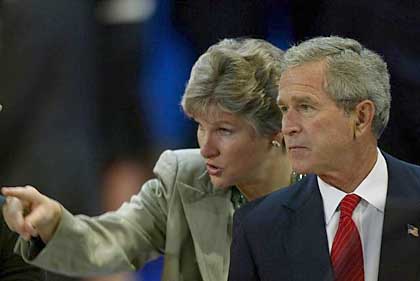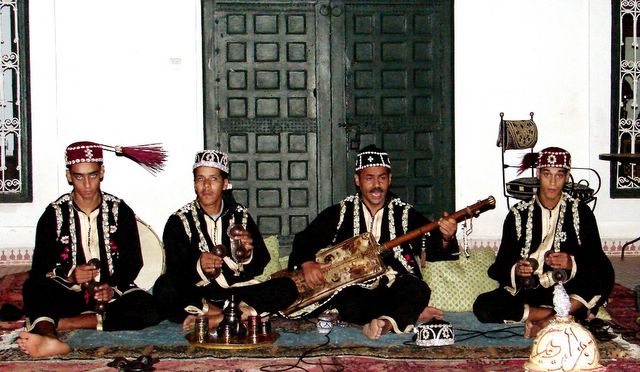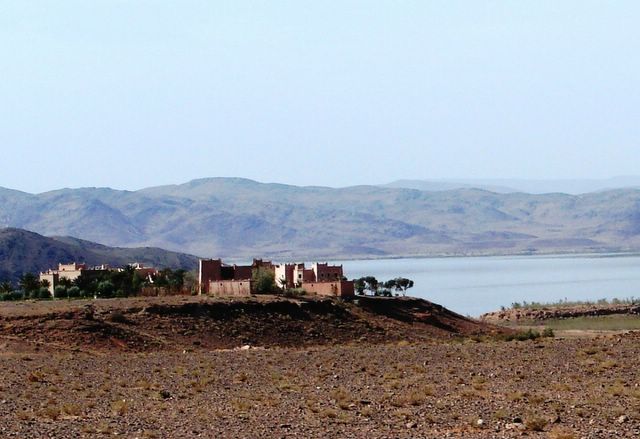Presidential Appointments
This week, two major presidential appointments were announced by the White House. The first caused a reaction very much like that caused by the nomination of John Bolton to the position of U.S. Ambassador to the UN, while the other drew a much more measured response from the president’s chief opponents. Be that as it may, both of today’s announcements are significant in that they confirm and solidify this president’s new strategy for international relations and public diplomacy.
Hawk in the Bank
 President Bush hardly waited for the dust to settle down from his nomination of John Bolton to the UN, before striking again tapping another hard-hitting conservative, Paul D. Wolfowitz, to become the next president of the World Bank. Although there have been hints for about a week now that Mr. Wolfowitz was being considered for the job, many did not expect the president to hit yet again with another controversial appointment. The official announcement caused quite a stir in international circles and drew some pointed comments from the democratic leadership in the House. It is not surprising that any appointment that concerns a polarizing operator like Mr. Wolfowitz would produce a controversy. However, even die-hard democrats have mixed feelings about this. On one hand, they are happy to see Mr. Wolfowitz vacate the halls of the Pentagon, and on the other, they are worried that his political philosophy would deepen the rift between the US and the international community. Mr. Wolfowitz was after all one of the chief architects of the U.S. invasion of Iraq.
President Bush hardly waited for the dust to settle down from his nomination of John Bolton to the UN, before striking again tapping another hard-hitting conservative, Paul D. Wolfowitz, to become the next president of the World Bank. Although there have been hints for about a week now that Mr. Wolfowitz was being considered for the job, many did not expect the president to hit yet again with another controversial appointment. The official announcement caused quite a stir in international circles and drew some pointed comments from the democratic leadership in the House. It is not surprising that any appointment that concerns a polarizing operator like Mr. Wolfowitz would produce a controversy. However, even die-hard democrats have mixed feelings about this. On one hand, they are happy to see Mr. Wolfowitz vacate the halls of the Pentagon, and on the other, they are worried that his political philosophy would deepen the rift between the US and the international community. Mr. Wolfowitz was after all one of the chief architects of the U.S. invasion of Iraq.Mr. Wolfowitz will be in for some animated exchanges with democrats over his nomination, but he will be easily confirmed into the World Bank presidency. His impact in the World Bank, I suspect, will be more positive than negative. This is because he will bring the management style that is needed in the short-term to steer the bank into the direction of performance-based and results-oriented development assistance.
It is also helpful to note that although the U.S. hosts the bank and is its largest shareholder, the ultimate decision-making authority within the bank is held by a Board of Governors where the U.S. share of votes is 16.4 percent. The other 181 member countries collectively hold close to 84 percent of the vote. Other notable shareholders of the Bank are: Japan (7.87 percent), Germany (4.49 percent), the United Kingdom (4.31 percent), and France (4.31 percent).
The Lady from Texas
 The White House also announced that the president nominated his long-time adviser, Karen P. Hughes, to the post of Undersecretary of State in charge of Public Diplomacy. This post, which was created after 9/11, has already seen two short-lived appointments. Mrs. Hughes will now have to pick up the pieces and formulate a comprehensive outreach policy to deal with mounting resentment of the U.S. in the Middle East and in the rest of the world. This is going to be an immensely difficult job. Karen Hughes must know that a propaganda campaign will not do the job. In regards to the Middle East, she should not make the mistake of following Arab regimes into the habit of insulting the intelligence of the people of the Middle East with blatant propaganda. What will cut it here is a concrete change in policy for which she will have to lobby relentlessly in the White House.
The White House also announced that the president nominated his long-time adviser, Karen P. Hughes, to the post of Undersecretary of State in charge of Public Diplomacy. This post, which was created after 9/11, has already seen two short-lived appointments. Mrs. Hughes will now have to pick up the pieces and formulate a comprehensive outreach policy to deal with mounting resentment of the U.S. in the Middle East and in the rest of the world. This is going to be an immensely difficult job. Karen Hughes must know that a propaganda campaign will not do the job. In regards to the Middle East, she should not make the mistake of following Arab regimes into the habit of insulting the intelligence of the people of the Middle East with blatant propaganda. What will cut it here is a concrete change in policy for which she will have to lobby relentlessly in the White House.Mrs. Hughes should also move to get the Arab community in the US to be more involved in U.S. public diplomacy efforts. But for that to happen in a legitimate manner, the Arab community in the U.S. should not feel alienated and discriminated against. As such, an important aspect of Mrs Hughes job will have to coordinate with other government agencies to stop hate speech against American Muslims (especially in conservative media). Although, some may view this as beyond the scope of foreign service work, Hughes must push for a domestic strategy to educate Americans about their fellow Arab and Muslim citizens for it is they who will help her educate the Middle East about America. The American administration will not find better messengers to carry its goodwill to the Middle East than its own Arab and Muslim community. Karen Hughes has something her predecessors did not have: access to the president. She will need that access to influence policy change both domestically and internationally for her to succeed in her new job because words and TV programs alone will not suffice.


























3 Comments:
I was reading this piece right before I found your blog.
First time reader here. Your blog is interesting, will visit again and link to you.
March 20, 2005
Jawad,
Je te remercie pour la note que tu as laissé sur mon blog et qui m'a beaucoup touché. Malheureusement pour moi, mon angalis très moyen ne me permet pas de lire et de suivre ton blog... Je te souhaite beaucoup de courage dans ce que tu fais...
March 21, 2005
Welcome Nadir and thank you for the link to Helen Thomas' article. Helen has been around for a long time so she knows fudge when she see it. If this administration continues to believe that the only problem it suffers in the Middle East is a negative info campaign instigated by the likes of Al-Jazeera, then it will continue to miss the point completely. Someone is going to have to shout out from the roof of the State Department: "It's the policy stupid!"
Sanaa, merci pour ton encouragement. Je passerais lire ton blog de façon routinière. Restes fidèle a tes instincts et continuons ensemble cette révolution intellectuelle dont notre région du monde a tellement besoin.
March 21, 2005
Post a Comment
<< Home